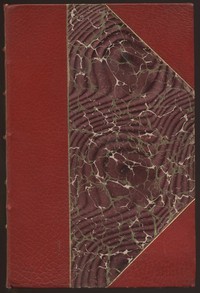Old Mortality, Volume 2. by Walter Scott (most important books to read txt) 📗

- Author: Walter Scott
Book online «Old Mortality, Volume 2. by Walter Scott (most important books to read txt) 📗». Author Walter Scott
As for Jenny, when she had thus conferred upon one admirer's outward man the viands which her fair hands had so lately been in the act of preparing for the stomach of another, she continued her song of alarm, running a screaming division upon all those crimes, which the lawyers call the four pleas of the crown, namely, murder, fire, rape, and robbery. These hideous exclamations gave so much alarm, and created such confusion within the Castle, that Major Bellenden and Lord Evandale judged it best to draw off from the conflict without the gates, and, abandoning to the enemy all the exterior defences of the avenue, confine themselves to the Castle itself, for fear of its being surprised on some unguarded point. Their retreat was unmolested; for the panic of Cuddie and his companions had occasioned nearly as much confusion on the side of the besiegers, as the screams of Jenny had caused to the defenders.
There was no attempt on either side to renew the action that day. The insurgents had suffered most severely; and, from the difficulty which they had experienced in carrying the barricadoed positions without the precincts of the Castle, they could have but little hope of storming the place itself. On the other hand, the situation of the besieged was dispiriting and gloomy. In the skirmishing they had lost two or three men, and had several wounded; and though their loss was in proportion greatly less than that of the enemy, who had left twenty men dead on the place, yet their small number could much worse spare it, while the desperate attacks of the opposite party plainly showed how serious the leaders were in the purpose of reducing the place, and how well seconded by the zeal of their followers. But, especially, the garrison had to fear for hunger, in case blockade should be resorted to as the means of reducing them. The Major's directions had been imperfectly obeyed in regard to laying in provisions; and the dragoons, in spite of all warning and authority, were likely to be wasteful in using them. It was, therefore, with a heavy heart, that Major Bellenden gave directions for guarding the window through which the Castle had so nearly been surprised, as well as all others which offered the most remote facility for such an enterprise.
CHAPTER V. The King hath drawn The special head of all the land together. Henry IV. Part II.
The leaders of the presbyterian army had a serious consultation upon the evening of the day in which they had made the attack on Tillietudlem. They could not but observe that their followers were disheartened by the loss which they had sustained, and which, as usual in such cases, had fallen upon the bravest and most forward. It was to be feared, that if they were suffered to exhaust their zeal and efforts in an object so secondary as the capture of this petty fort, their numbers would melt away by degrees, and they would lose all the advantages arising out of the present unprepared state of the government. Moved by these arguments, it was agreed that the main body of the army should march against Glasgow, and dislodge the soldiers who were lying in that town. The council nominated Henry Morton, with others, to this last service, and appointed Burley to the command of a chosen body of five hundred men, who were to remain behind, for the purpose of blockading the Tower of Tillietudlem. Morton testified the greatest repugnance to this arrangement.
"He had the strongest personal motives," he said, "for desiring to remain near Tillietudlem; and if the management of the siege were committed to him, he had little doubt but that he would bring it to such an accommodation, as, without being rigorous to the besieged, would fully answer the purpose of the besiegers."
Burley readily guessed the cause of his young colleague's reluctance to move with the army; for, interested as he was in appreciating the characters with whom he had to deal, he had contrived, through the simplicity of Cuddie, and the enthusiasm of old Mause, to get much information concerning Morton's relations with the family of Tillietudlem. He therefore took the advantage of Poundtext's arising to speak to business, as he said, for some short space of time, (which Burley rightly interpreted to mean an hour at the very least), and seized that moment to withdraw Morton from the hearing of their colleagues, and to hold the following argument with him:
"Thou art unwise, Henry Morton, to desire to sacrifice this holy cause to thy friendship for an uncircumcised Philistine, or thy lust for a Moabitish woman."
"I neither understand your meaning, Mr Balfour, nor relish your allusions," replied Morton, indignantly; "and I know no reason you have to bring so gross a charge, or to use such uncivil language."
"Confess, however, the truth," said Balfour, "and own that there are those within yon dark Tower, over whom thou wouldst rather be watching like a mother over her little ones, than thou wouldst bear the banner of the Church of Scotland over the necks of her enemies."
"If you mean, that I would willingly terminate this war without any bloody victory, and that I am more anxious to do this than to acquire any personal fame or power, you may be," replied Morton, "perfectly right."
"And not wholly wrong," answered Burley, "in deeming that thou wouldst not exclude from so general a pacification thy friends in the garrison of Tillietudlem."
"Certainly," replied Morton; "I am too much obliged to Major Bellenden not to wish to be of service to him, as far as the interest of the cause I have espoused will permit. I never made a secret of my regard for him."
"I am aware of that," said Burley; "but, if thou hadst concealed it, I should, nevertheless, have found out thy riddle. Now, hearken to my words. This Miles Bellenden hath means to subsist his garrison for a month."
"This is not the case," answered Morton; "we know his stores are hardly equal to a week's consumption."
"Ay, but," continued Burley, "I have since had proof, of the strongest nature, that such a report was spread in the garrison by that wily and grey-headed malignant, partly to prevail on the soldiers to submit to a diminution of their daily food, partly to detain us before the walls of his fortress until the sword should be whetted to smite and destroy us."
"And why was not the evidence of this laid before the council of war?" said Morton.
"To what purpose?" said Balfour. "Why need we undeceive Kettledrummle, Macbriar, Poundtext, and Langcale, upon such a point? Thyself must own, that whatever is told to them escapes to the host out of the mouth of the preachers at their next holding-forth. They are already discouraged by the thoughts of lying before the fort a week. What would be the consequence were they ordered to prepare for the leaguer of a month?"
"But why conceal it, then, from me? or why tell it me now? and, above all, what proofs have you got of the fact?" continued Morton.
"There are many proofs," replied Burley; and he put into his hands a number of requisitions sent forth by Major Bellenden, with receipts on the back to various proprietors, for cattle, corn, meal, to such an amount, that the sum total seemed to exclude the possibility of the garrison being soon distressed for provisions. But Burley did not inform Morton of a fact which he himself knew full well, namely, that most of these provisions never reached the garrison, owing to the rapacity of the dragoons sent to collect them, who readily sold to one man what they took from another, and abused the Major's press for stores, pretty much as Sir John Falstaff did that of the King for men.
"And now," continued Balfour, observing that he had made the desired impression, "I have only to say, that I concealed this from thee no longer than it was concealed from myself, for I have only received these papers this morning; and I tell it unto thee now, that thou mayest go on thy way rejoicing, and work the great work willingly at Glasgow, being assured that no evil can befall thy friends in the malignant party, since their fort is abundantly victualled, and I possess not numbers sufficient to do more against them than to prevent their sallying forth."
"And why," continued Morton, who felt an inexpressible reluctance to acquiesce in Balfour's reasoning—"why not permit me to remain in the command of this smaller party, and march forward yourself to Glasgow? It is the more honourable charge."
"And therefore, young man," answered Burley, "have I laboured that it should be committed to the son of Silas Morton. I am waxing old, and this grey head has had enough of honour where it could be gathered by danger. I speak not of the frothy bubble





Comments (0)